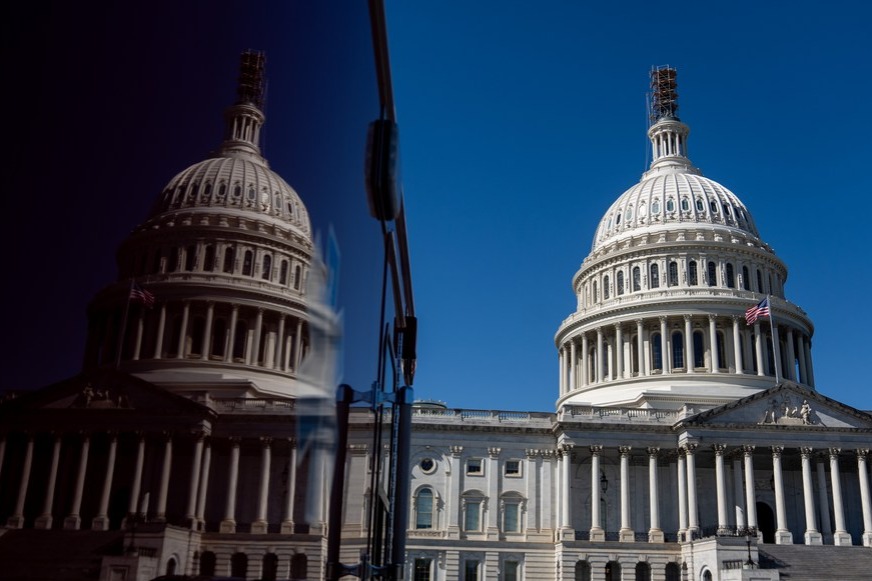Anti-China bills pile up in Texas Legislature
By MAY ZHOU in Houston | chinadaily.com.cn | Updated: 2023-03-21 10:50
Lawmakers in Texas' Republican-controlled state Legislature are jumping on a bandwagon with bills aimed at making China an adversary.
Since SB 147, which would ban government entities, companies and citizens of China, the Democratic People's Republic of Korea, Iran and Russia from purchasing real property in Texas became widely known in mid-January, numerous bills of a similar nature have been proposed, all by Republican lawmakers.
Currently, there are nine bills primarily targeting China and other foreign countries in Texas.
The latest is HB 4736, proposed by state Representative Tony Tinderholt. It would shut the door of the state's higher educational institutions to students who are citizens of China, Iran, the DPRK or Russia. It would also prohibit Texas universities and colleges from admitting those without a legal status in the US.
The bill echoes a comment by a former candidate for state representative. Shelley Luther, a Dallas salon owner who was defeated in the 2022 election. She tweeted last year that Chinese students should be banned from "attending all Texas universities" as part of her campaign message.
An online comment about the bill by someone who used the name Sam said: "There were tons of Chinese students at my university. They were some of the smartest, kindest and most hard-working people at my college."
"As a person in academia, a college level teacher, and a friend to many international students: this is just blatantly racist and stupid," another online comment with the name Kasey said. "They pay big money (out of state tuition y'all) to come and study here. Money that can be used to help struggling American students."
The bill, if passed, would have a major impact on Texas colleges and universities financially.
According to ApplyBoard, Texas is the third most popular destination for international students in the US. For the academic year 2020-21, despite the decline of international enrollment due to the pandemic, close to 13,000 Chinese students were registered in universities and colleges in Texas.
In Houston, 1 in every 5 international students was from China for the 2020-21 academic year, and in Dallas, 16 percent of international students were from China.
For the 2022-23 academic year, 1,415 Chinese students were enrolled at the University of Texas in Austin, one of the top public schools in the state.
SB 711 would require foreign entities, businesses and individuals from countries identified as posing a risk to US national security to disclose their nation of origin when purchasing real property. It also allows the seller to end the sale agreement based on such disclosure without any penalty or liability.
HB 4006 would prohibit government entities and companies of China, Iran, Russia or the DPRK from purchasing real property in Texas. If violated, the involved party would have one year to divest the property or face forced sales, with the proceeds going to the Texas general revenue fund.
SB 1441 would allow the state to forfeit real property owned by an alien, foreign company or government entity if the property is deemed to be used in a manner that violates state or federal law or creates a risk to the state's critical infrastructure. The bill defines infrastructure as properties in about 20 categories, including general industries such as financial services, healthcare, wastewater, food and agriculture.
Another bill, HB 2788, would make it a criminal offense for citizens, companies and government entities of designated countries to acquire real property in Texas. The "designated countries" will be decided by the governor.
The bill proposes harsh punishments for violators: jail time and a hefty fine — the greater of $250,000 or 50 percent of the market value of the real property in violation. In addition, the state will forfeit the property to be managed and owned by the Texas General Land Office.
SB 552 would prohibit a contract or agreement with foreign-owned companies of China, Iran, Russia or the DPRK or any country designated by the governor in connection with projects of critical infrastructure and agricultural land. Critical infrastructure includes "a communication infrastructure system, cybersecurity system, electric grid, hazardous waste treatment system, or water treatment facility".
HB 2425 would prohibit a governmental entity from entering a contract with a company for goods or services unless the contract contains a written verification from the company that it isn't a Chinese company.
HB 1075 is the only bill that isn't targeting China exclusively. It proposes to prohibit a foreign government, company or other entity that is directly or indirectly held or controlled by a foreign government and its subsidiaries from leasing, purchasing or otherwise acquiring title to or holding any other interest in agricultural land in the state.
























